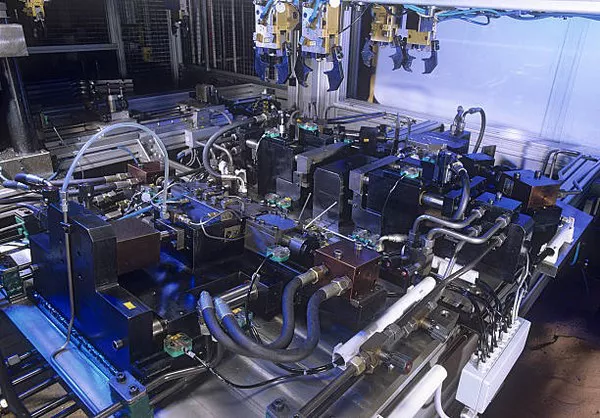Generators serve as crucial backups for homes and businesses during power outages, as well as primary sources of power in remote locations. However, understanding how much gas is needed to run a generator is vital for effective operation and cost management. This article delves into the various factors that influence gas consumption in generators, providing insights into estimating fuel needs and tips for efficient usage.
Types of Generators
Before delving into gas consumption, it’s essential to understand the types of generators available. Broadly, they can be classified into two categories:
Portable Generators: These generators are smaller, often powered by gasoline, and are designed for temporary power supply. They are versatile for home use, outdoor activities, or emergency situations.
Standby Generators: Installed permanently, standby generators typically run on natural gas or propane. They are automatically activated during a power outage and are generally more fuel-efficient than portable generators due to their larger engines.
Factors Affecting Gas Consumption
Several factors influence how much gas a generator consumes:
1. Generator Size and Power Output
The size of the generator, measured in watts, directly correlates with gas consumption. Generators are available in various sizes, from small units providing 1,000 watts to larger ones capable of supplying up to 20,000 watts or more. The larger the generator and the more devices connected to it, the more gas it will consume.
For instance:
- A 5,000-watt generator may consume approximately 0.5 gallons of gas per hour.
- A 10,000-watt generator might consume around 1 gallon of gas per hour, depending on the load.
2. Load Demand
The electrical load placed on the generator significantly affects fuel consumption. The more devices you power, the more fuel the generator needs. A generator running at full load (i.e., maximum capacity) will consume more gas than one running at half load.
Understanding the power requirements of your devices helps estimate how much gas will be used. For example, if you connect devices totaling 3,000 watts to a 5,000-watt generator, the load is at 60% capacity, potentially reducing fuel consumption compared to running the generator at full capacity.
3. Generator Efficiency
Generator efficiency is a measure of how effectively a generator converts fuel into electrical energy. High-efficiency generators typically consume less gas for the same amount of power output. Factors contributing to efficiency include the generator’s design, engine type, and maintenance practices.
4. Fuel Type
The type of gas used also impacts consumption. While most portable generators run on gasoline, others can operate on propane or natural gas. Here’s a brief comparison:
Gasoline: Commonly used in portable generators; however, it has a relatively short shelf life and can cause issues if not used within a year.
Propane: Burns cleaner than gasoline, resulting in lower emissions and less carbon buildup. Propane generators may have slightly higher efficiency rates, resulting in less gas consumption per watt.
Natural Gas: Often used in standby generators, providing a continuous supply of fuel without the need for storage. The consumption rates can be different, typically measured in cubic feet instead of gallons.
5. Operating Conditions
Environmental conditions can also affect gas consumption. Factors such as temperature, altitude, and humidity play a role. For example, generators may consume more gas in colder temperatures as the engine requires more energy to start and maintain optimal operation. Additionally, high altitudes can affect engine performance and efficiency, leading to increased fuel usage.
Estimating Gas Needs
To estimate how much gas you will need to run your generator, follow these steps:
Determine the Total Load: Calculate the wattage of all devices you plan to run simultaneously. Add these values to get the total load.
Select Your Generator Size: Choose a generator that meets or exceeds your total wattage requirement.
Calculate Fuel Consumption: Use the generator’s fuel consumption rate (gallons per hour) as a baseline. Many generators will provide a fuel consumption chart based on load percentages in the user manual.
Estimate Usage Time: Determine how many hours you expect to run the generator during an outage or task. Multiply the fuel consumption rate by the estimated usage time to find the total fuel needed.
Example Calculation:
- Total Load: 3,000 watts
- Generator Size: 5,000 watts
- Fuel Consumption: 0.5 gallons/hour at half load
- Estimated Usage Time: 8 hours
Using the above values:
Total Gas Needed=Fuel Consumption Rate×Usage Time=0.5 gallons/hour×8 hours=4 gallons
Tips for Efficient Fuel Use
To maximize fuel efficiency and reduce costs, consider the following tips:
1. Regular Maintenance
Ensure that your generator is well-maintained, including regular oil changes, air filter replacements, and spark plug inspections. A well-maintained generator runs more efficiently and consumes less fuel.
2. Load Management
Balance the load on your generator to avoid running it at full capacity for extended periods. By prioritizing essential devices and staggering their use, you can reduce overall gas consumption.
3. Fuel Storage
If using gasoline, ensure proper fuel storage practices. Use fresh fuel and consider fuel stabilizers if storing gasoline for extended periods. For propane and natural gas users, maintain adequate supply levels to prevent running out during critical times.
4. Consider Upgrades
If you find your generator consistently consumes more gas than expected, it may be time to consider upgrading to a more efficient model. Newer generators often have better fuel economy ratings and more advanced technologies.
5. Use Efficient Appliances
Where possible, use energy-efficient appliances that require less power. This practice reduces the load on your generator and subsequently decreases gas consumption.
See Also Transfer Switches for Generators: What They Are & Why You Need One
Conclusion
Understanding how much gas is needed to run a generator involves considering various factors, including generator size, load demand, efficiency, fuel type, and environmental conditions. By calculating your specific requirements and implementing tips for efficient fuel use, you can optimize your generator’s performance and minimize costs. With proper knowledge and management, you can ensure your generator operates effectively, providing peace of mind during power outages or in remote areas.
You Might Be Interested In

